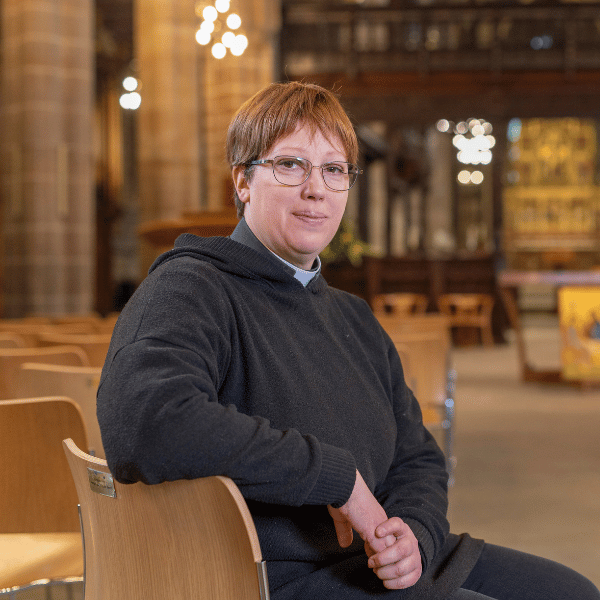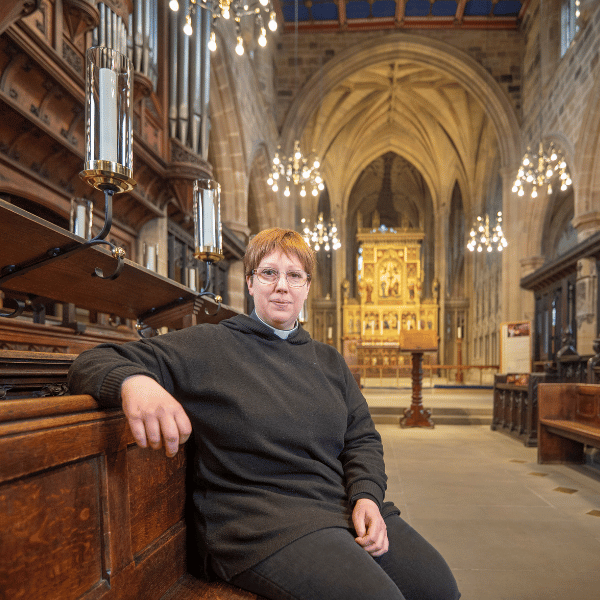The Revd Canon Dr Kathryn Goldsmith is Precentor at Wakefield Cathedral, in the Diocese of Leeds. Before Kathryn began this role, she was serving in parish ministry during the COVID-19 pandemic.
Keeping communities together, parishioners positive in the face of unprecedented challenges, and navigating a new normal of restrictions and online church services - many clergy found themselves exhausted and burnt out once lockdown was over.
We were privileged to provide Kathryn with a Holiday grant. This meant she could take her first proper break since the pandemic, finishing a trip to New York that had been cut short by the start of theological college.
Emergency grants also helped to ease the demands on her time and her finances, including helping to replace a broken washing machine and to repair her car.
"Burnout isn't good for you, or for everyone around you."
"When you're ordained, there's no set working hours and you're responsible for your own workload. Clergy can be very conscientious about wanting to make sure that their parish comes first. It's so easy to think 'well, it's my day off, but I'll just do this on the computer' or 'I'll just sort that funeral out'. It's really, really difficult to step away from work.
You end up giving so much, that you don't have any time left to take care of yourself, and that's no good to your parishioners.
I've known clergy who've burnt themselves out doing that, and I came fairly close to that myself. Clergy taking care of themselves is something we don't find very easy to do. It's not part of our vocation, but it's necessary. Being able to stop and look after yourself is crucial.
This year, I moved into the precentor's house, which has a huge garden. I don't think my predecessor had been able to do a huge amount with it in the past. For somebody who doesn't know how to garden, and who hasn't got the time - because I don't even have time to just relax these days - it was a really daunting task to know where to begin.
An Emergency grant for gardening costs enabled me to get a gardener to come in and to get the garden back to a manageable state, which is something I could never have achieved on my own!"
We are concerned that more than 1 in 5 serving clergy rely on our help.
That’s why, as well as providing grants and services for those in need, we're working with the national Churches and others to develop longer-term solutions, so that every clergy household can thrive.
In 2024, we supported almost 2,800 Anglican clergy households, with more than 6,800 grants. The demand for our services has quadrupled in the past five years, and continues to grow. We're only able to walk alongside clergy and their families with your help.
If you can make a donation through the link below, to help us continue to serve the people who spend their lives serving others, it would be greatly appreciated.


